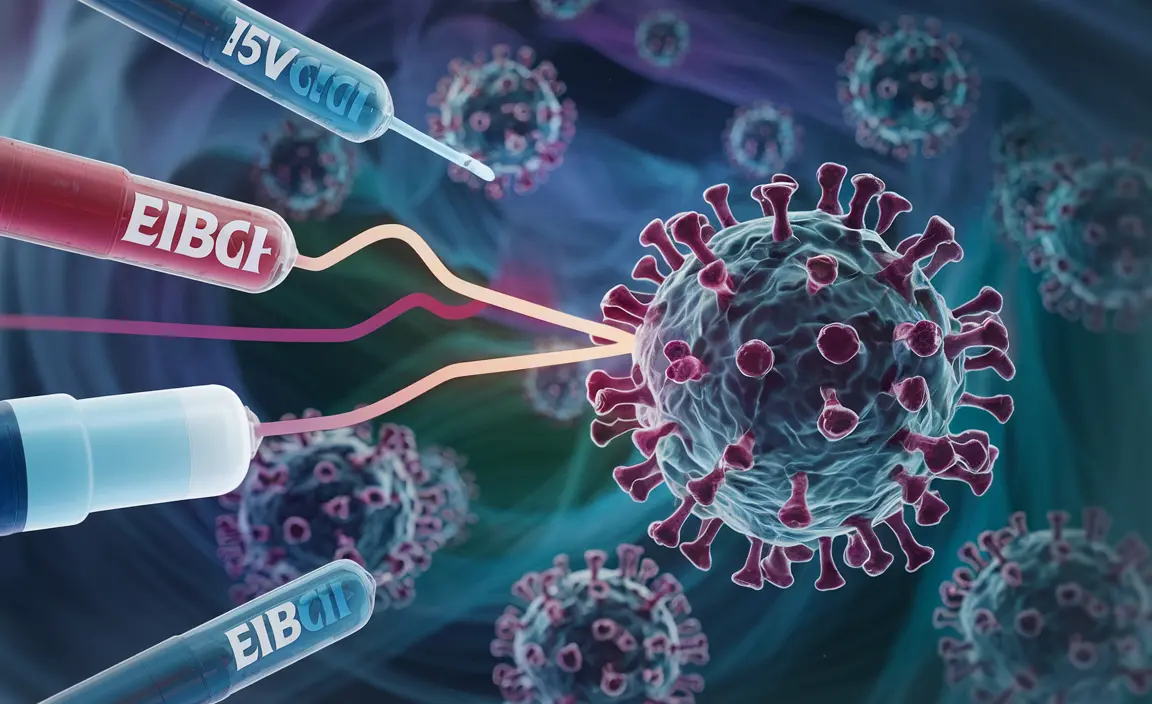Receiving a positive EBV VCA IgG test result can raise many questions about your health status and what it means for your well-being. This antibody test is a crucial tool in diagnosing and understanding Epstein-Barr virus (EBV) infections, both past and present. Let's explore what this test result means and its implications for your health.
What Is EBV VCA IgG?
EBV VCA IgG (Viral Capsid Antigen Immunoglobulin G) is an antibody that your immune system produces in response to exposure to the Epstein-Barr virus. These antibodies are part of your body's defense mechanism and can provide valuable information about your history with EBV infection.
Interpreting a Positive EBV VCA IgG Result
A positive EBV VCA IgG test result typically indicates that you have been infected with the Epstein-Barr virus at some point in your life. This is extremely common, as approximately 90-95% of adults worldwide have been exposed to EBV by age 40.
What Your Result Actually Means
When your test shows positive for EBV VCA IgG, it usually means:
- You have been exposed to EBV in the past
- Your immune system has developed long-term protection against the virus
- These antibodies will likely remain in your system for life
- You may or may not have experienced symptoms during the initial infection
The Relationship Between Different EBV Antibodies
Understanding EBV infection status requires looking at multiple antibody tests together. The combination of different antibody results helps healthcare providers determine whether an infection is:
- Current or active
- Recent but resolving
- From the distant past
- Reactivated
Common Antibody Patterns
Different antibody patterns can indicate various stages of EBV infection:
- VCA IgG positive + VCA IgM negative: Usually indicates past infection
- VCA IgG positive + VCA IgM positive: May suggest current or recent infection
- VCA IgG positive + EBNA positive: Typically indicates past infection
- VCA IgG positive + EA-D positive: Could indicate active or reactivated infection
Clinical Significance and Health Implications
For most people, a positive EBV VCA IgG result without other concerning antibody patterns or symptoms doesn't require specific treatment or cause for concern. However, understanding your EBV status can be important for:
- Diagnosing unexplained symptoms
- Monitoring immune system function
- Evaluating risk for EBV-related complications
- Understanding potential causes of fatigue or other persistent symptoms
Frequently Asked Questions
- What does a positive EBV VCA IgG test result mean for my health?
A positive EBV VCA IgG test result typically indicates that you have been infected with the Epstein-Barr virus at some point in your life. This is usually not a cause for concern and means you have developed immunity to the virus.
- How can I tell if my EBV infection is current or past based on antibody test results?
The presence of VCA IgG alone usually indicates past infection. Current infections are typically identified by the presence of both VCA IgG and VCA IgM antibodies, along with clinical symptoms.
- Can a positive EBV VCA IgG result occur without active infection or symptoms?
Yes, a positive EBV VCA IgG result commonly occurs without any current symptoms or active infection. These antibodies typically remain in your system for life after the initial infection has resolved.
- Should I be concerned if my EBV VCA IgG is positive but VCA IgM is negative?
No, this pattern typically indicates a past infection and successful immune response. It's a common and normal finding in healthy adults who have previously been exposed to EBV.
- How is Epstein-Barr virus infection diagnosed using different antibody tests?
EBV infection is diagnosed using a panel of antibody tests including VCA IgG, VCA IgM, and EBNA. The pattern and combination of these results, along with clinical symptoms, help determine the stage and status of infection.




